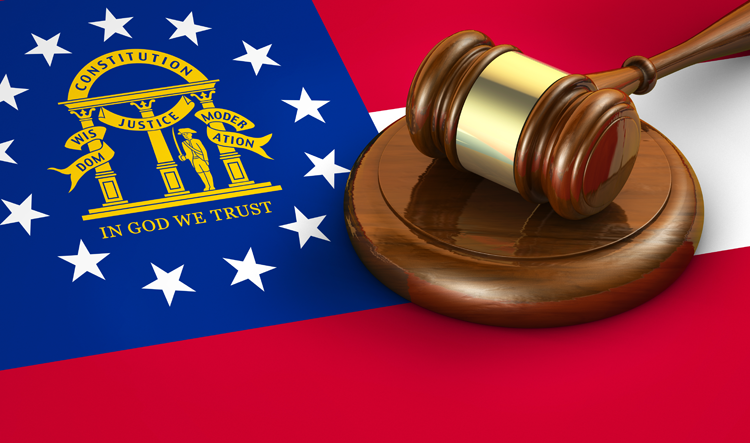Lofty Valuation Carries Trump’s Social Media Company Into First Trading Day
There’s a new high-flying stock on Wall Street that some investors are eagerly piling into. Its largest shareholder is former President Donald J. Trump.
His social media company, Trump Media & Technology Group, will start trading on the Nasdaq on Tuesday, under the ticker DJT. Trump Media — the parent of Truth Social, the online platform that is Mr. Trump’s main megaphone for reaching supporters and going after critics — closed its merger with a cash-rich public shell company on Monday.
The shell company’s stock surged ahead of the deal, in a frenzied trade that has fueled the company since it proposed the merger with Mr. Trump’s firm in 2021. Monday’s trading suggested that the market valuation of the new company could be well over $6 billion — making it worth more than established corporations like Alaska Airlines, Western Union and American Eagle Outfitters.
The biggest beneficiary of the market action is Mr. Trump, who owns about 60 percent of Trump Media’s shares. At the close of trading on Monday, his stake was worth nearly $4 billion.
Before the merger, shares of the shell company — Digital World Acquisition Corporation — had long behaved as something of a proxy for investor sentiment about Mr. Trump. And that is likely to continue for the merged companies, especially as Mr. Trump remains in the headlines with pending trials and the presidential campaign.
By most traditional measures, Trump Media’s valuation is inordinately high. The company took in just $3.3 million in revenue during the first nine months of last year, all from advertising on Truth Social, and recorded a loss of $49 million.
That means Trump Media’s market value is more than 1,000 times its estimated annual revenue. Investors regularly assign lofty valuations to small, money-losing companies in anticipation of rapid growth — or a belief that other investors will continue to bid up a company’s shares, for whatever reason — but typically not on this scale.
Other social media companies trade at far smaller price-to-sales ratios than Trump Media: Reddit is around 10, Meta is 7 and Snap is 6, according to FactSet. High-flying tech stocks like the chipmakers Nvidia and ARM trade at price-to-sales ratios of about 25.
The investors who have piled into the stock of Digital World have tended to be individuals, rather than investment firms and hedge funds.
On Monday alone, shares of Digital World, in the final day of trading before the stock symbol changes to DJT, rose 35 percent. Based on that kind of trading, Trump Media looks a lot like the so-called meme stocks — GameStop, AMC Entertainment and others — that were propelled to dizzying heights by armies of amateur investors in manic trading during the pandemic.
“It’s difficult to say how this will trade, but it definitely has the DNA of a meme stock, so we might see some extreme volatility,” said Kristi Marvin, a former investment banker and editor of SPACInsider, which gathers data on the market for special purpose acquisition companies.
Digital World was organized as a special purpose acquisition company. The sole purpose of a SPAC is to raise money from investors and then merge with an operating business, which then becomes the publicly traded entity. This year, shares of Digital World had risen more than 140 percent once it became clear that Mr. Trump was going to be the Republican nominee for president.
The merger between Trump Media and Digital World was completed as Mr. Trump faced a deadline on Monday to secure a bond to cover a big penalty imposed by a judge in a civil fraud case. But in a break for Mr. Trump, an appellate court reduced the amount that he would need to post, to $175 million from $454 million, and gave him more time to raise the money.
The appellate court’s action seemed to ease the pressure on Mr. Trump to try to tap his newfound Trump Media wealth. To do so, he would need the company’s new seven-member board to remove a restriction that prevents him from selling shares or using shares as collateral for six months.
The board may still vote to loosen that restriction if that is what Mr. Trump wants. He holds tremendous sway over the company: Besides owning about 60 percent of Trump Media’s stock, he owns a separate class of shares that gives him at least 55 percent voting power over any measure presented for a shareholder vote.
Mr. Trump will no longer serve as chairman of Trump Media, but the board is filled with directors who have loyalties to him. They include his eldest son, Donald Trump Jr., and Devin Nunes, the company’s chief executive and a former Republican congressman from California. Also on the board are three people who served in his administration: Kash Patel, who was the chief of staff to Mr. Trump’s acting secretary of defense; Robert Lighthizer, a former U.S. trade representative; and Linda McMahon, a former administrator of the Small Business Administration.
Ms. McMahon is a chairwoman of a big fund-raiser for Mr. Trump scheduled on April 6 in Palm Beach, Fla.
But now that Mr. Trump no longer faces an urgent need to raise a large amount of cash, he might be content to let the six-month restriction on selling shares remain. After all, a flood of Trump Media shares onto the market would probably either depress the stock price or prevent it from rising higher.
Also, from Mr. Trump’s perspective, the surging price of Trump Media’s shares gives him bragging rights on the campaign trail. One of his political calling cards has been to talk about his success as a businessman and his enormous wealth — something that’s easier for him to do since the merger.
The bigger challenge for Trump Media’s board is coming up with a strategy to increase the company’s business and expand the reach of Truth Social in order to justify the company’s valuation.
In merging with Digital World, Trump Media got a badly needed infusion of roughly $300 million in cash that Digital World had raised from investors. Without that infusion, Trump Media and Truth Social were looking at potentially shutting down.
But as a public company, Trump Media will now draw more scrutiny from investors and regulators. It will be required to file periodic financial reports with the Securities and Exchange Commission and reveal in detail any new deals it may strike with Mr. Trump.
“In a public company you have the scrutiny now of investors and regulators,” said Usha Rodrigues, a professor of corporate law at the University of Georgia School of Law. “Any stockholder now has standing to bring a lawsuit if they claim one of the company’s statements is misleading.”






